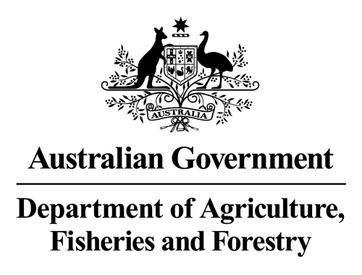DAFF Packing Declaration Requirements

DAFF Packing Declaration Requirements
At the recent IFCBAA Victorian CPD Forum held at Crown Promenade, Mark Sobey (Director – Assessment Policy) delivered a presentation to IFCBAA members on departmental biosecurity initiatives and some common packing declaration errors. Responding to a member question about packing declarations, the department provided a comprehensive response including some examples to assist members and importers to meet their obligations.
At sections 4.5.2 and 4.5.5 of the policy it is a requirement that packing declarations need to:
contain all statements required by the Non-commodity information requirements policy, and
be issued by the exporter, supplier or packer who packed the goods into the container
be endorsed by an employee of the company issuing the annual packing declaration. This includes the name and signature of the employee.
At section 4.5.6 of the policy it is a requirement that container cleanliness declarations need to:
contain all statements required by the Non-commodity information requirements policy
be issued by the exporter, supplier or packer who packed the goods into the container
be endorsed by an employee of the company issuing the annual packing declaration. This includes the name and signature of the employee.
If the person issuing the packing declaration is not an employee of the company who packed or oversaw the packing of the goods into the container then the packing declaration should not be accepted. This requirement is in place because the department wants to obtain assurance from the company who packed the container to confirm the container is clean, confirm if timber/bamboo packing has been used, confirm whether the timber/bamboo packing is ISPM compliant, and confirm whether there is any unacceptable packing material used in the consignment. The department wants to receive the packing declaration from the person/entity who is responsible for packing the container.
Should the department identify biosecurity risks or if there is a pest or disease outbreak in Australia (e.g. khapra beetle) which is confirmed is a result of incorrect information being provided on a packing declaration, the department needs to be in a position to confirm how the incident occurred, who was responsible for providing the packing declaration, and confirm whether that person/entity was capable to providing the information on the packing declaration in the first instance. The information contained on the packing declaration is relied on to assess and manage biosecurity risks.
The following are some examples that have occurred in recent times that reflect why this requirement is in place.
Example 1
In 2020 during the height of the COVID pandemic, an accredited person accepted a packing declaration from an Australian importer for an LCL consignment of car parts. The goods had been shipped from England via LCL. The packing declaration was on a letter head of the Australian importer and was endorsed by the Australian importer declaring no timber packing had been used. The packing declaration was questioned on the basis of the importer issuing the packing declaration. The importer stated that they were present when the container was packed/consigned and advised that they were capable of making the declaration. At the time there was no international travel and it was not possible for the person to have been present overseas at the time the goods were shipped, therefore, the importer was not in a position to attest to the veracity of the information contained on the packing declaration. A subsequent packing declaration was provided by the company who consigned the goods and that packing declaration declared timber packing had been used in the consignment.
Example 2
Company A in Singapore was reported as the supplier on the import declaration. The goods had been manufactured, sourced, and packed into a container by Company B in Germany. The goods were exported from Belgium as an FCL consignment. An annual packing declaration was issued on Company A letterhead and signed by a person from Company C in France. The annual packing declaration was issued in January 2023 and the consignment arrived into Australia in May 2023.
The department did not accept the annual packing declaration as it was not clear who packed the container nor whether the person issuing the declaration was in a position to attest that Company B would meet the requirements for the period of 12 months. A subsequent annual packing declaration was presented to the department which was issued in February 2023. The annual packing declaration was issued by Company B in Germany to reflect that they were responsible for providing the attestation on the annual packing declaration declaring that containers packed by them for the period of 12 months would meet the requirements as declared on the packing declaration.
News Source: IFCBAA Newsletter dated: 28.06.2023



